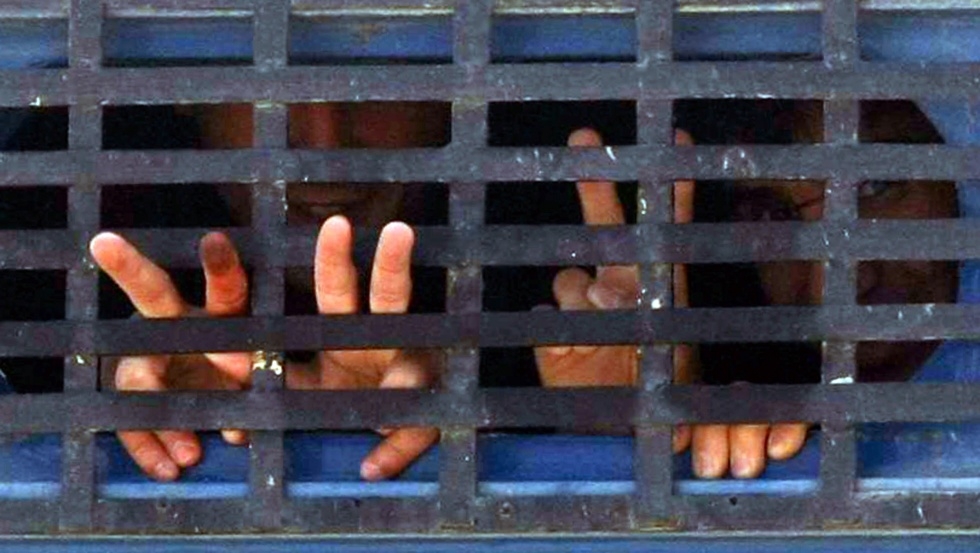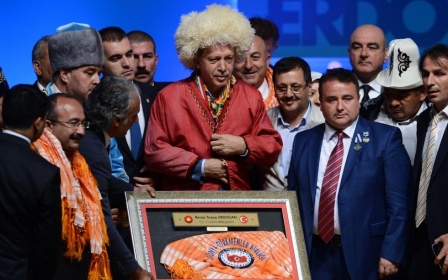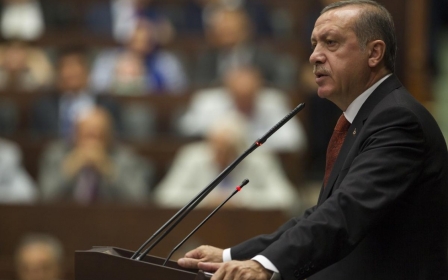The dark politics of Turkish criminal justice: the case of Gulsum Koc

In the mountain town of Bingöl in eastern Turkey, the arrest, conviction and imprisonment of a young Kurdish woman is symbolic of all that is wrong with Turkish criminal justice and the corrosive politics that infuse it. Gülsüm Koç, now just 21, is serving the fourth year of a 56-year sentence, handed down to her when she was a 17-year old school girl. In May 2011, she was accused of involvement in an attack on a police car that wounded an officer in the leg. Apart from the evidence of a secret informer, who placed her near the scene at the time of the attack, there is no concrete evidence to link Gülsüm to the attack. She has always maintained her innocence. She was, however, convicted of attempting to kill a public official (Article 82/g of the Turkish Penal Code) and disrupting the unity and integrity of the state (Article 302 of the Turkish Penal Code).
The case of Gülsüm Koç is not simply a scandalous miscarriage of individual justice in which a child was sentenced to life imprisonment plus 26 without any evidence. It is emblematic of all that is corrupt and abusive in Turkish politics and criminal justice. Gülsüm’s case has become a cause célèbre in eastern Turkey and it highlights both the limitations of Turkish political and legal reform and the forces that have obstructed any serious reforms.
Gülen, Erdoğan and the Politics of Scapegoating
It seems clear that Gülsüm has become a casualty of the increasingly bitter political conflict between Recep Tayyip Erdoğan’s AKP (Adelet ve Kalkinma Partisi, Justice and Development Party) and his rival Fethullah Gülen’s Hizmet movement – a battle fought most fiercely within the institutions of the state apparatus. Gülenists occupy many of the most prominent positions within Turkey’s criminal justice bureaucracy and are said to be disproportionately represented within the judiciary and prosecution, police, and secret services. Many argue that the criminal justice process has, in fact, been “captured by Hizmet.”
In a 2009 cable released by Wikileaks, James F. Jeffrey, the United States ambassador to Turkey at the time, reported that the Gulen movement had an apparently strong presence within the police. He wrote: “The assertion that the TNP is controlled by Gulenists is impossible to confirm but we have found no one who disputes it, and we have heard accounts that TNP applicants who say that Gulenist pensions are provided the answers in advance to the TNP entrance exam.”
One member of the Bingöl Human Rights Association executive told of a Gülen -supporting relative promoted to the Supreme Court bench within two years of graduation and, according to Muharrem Cizi, Gülsüm’s high school teacher, “the Ağir Ceza (Diyabakir’s No 4 Heavy Penal Court which convicted her) “belongs” to the Gulen movement.”
Why all this matters for Gülsüm Koç boils down to the competing political ambitions of the two most powerful forces in Turkish politics. The Prime Minister (soon to be president) name has accused Fethullah Gülen and his Hizmet supporters of operating a parallel state, in which they have used their excessive influence within the criminal justice system to undermine government reforms and fabricate corruption charges against Erdogan and his inner circle.
In the slow process toward peace, the ruling AKP has entered into negotiations with the imprisoned PKK leader, Abdullah Öcalan. Gülen opposes any such negotiation and instead, while supporting increased educational and other rights for Kurdish citizens and their assimilation into mainstream Turkish society, he wants to see the elimination of the PKK. Those close to the case believe that the Gülen movement, through its power base in the judicial system, is attempting to derail the peace process by detaining as many prominent figures in the Kurdish movement as possible for long periods. Gülsüm was a politically active young woman who had previously been detained by the police because of her involvement in the BDP (Kurdish Peace and Democracy party, now the HDP Peoples' Democratic party) – a recognized political party with 27 deputies in the Turkish parliament. Despite her youth and lack of political prominence, she was to become a victim of the Gülen derailment strategy.
According to Mehmet Kurt, secretary of the Bingol branch of IHD and an academic expert on Islamic movements in Turkey: “Gülsüm‘s case is a casualty of the way in which the Gülen movement have chosen to handle the Kurdish issue. It is obvious to me that if her trial was held at another time when the Gülen movement members in the criminal justice process were acting less oppressively against Kurds, she would have be released or drawn a lesser punishment. Her bad luck is that the accident happened in a time when all Kurdish politicians and supporters of the Kurdish movement were sent to prisons with almost no reason. I believe that if she had a better trial free from the political struggle between the Gülen movement and the government, she could have had a better chance.”
Politics on Trial
The trial (in Diyabakir’s No. 4 Heavy Penal Court) and the appeal which upheld the original decision (in Ankara’s court of Cassation (Yargıtay) 9th Criminal Division) were little more than a legal farce, according to the Bingöl lawyers and human rights activists involved. According to Muharrem Cici, “The court judged Gülsüm through the lens of their assumptions…they saw her as a political activist and they used the fact that while she was in prison on remand she participated in a hunger strike and other acts of prison resistance. Moreover she wanted to defend herself in Kurdish.” For the Turkish state, such activities are tantamount to membership of the PKK.
Muharrem believes that Gülsüm was sentenced, not for any involvement in the attack on the police car (for which he believes she is innocent), but for her defiant activities in prison and the courtroom. The Diyarbakir 4th Heavy Penal Court convicted her under articles 82 and 302 for involvement in the attack on the police officers. When her sentence was announced she had shouted the slogan “Long live Öcalan.”
This was, he said, the primary factor for the further charge and conviction of engaging in propaganda for a terrorist organization, under Article 7 of the Anti-Terror Law in the Diyarbakir No. 8 Heavy Penal Court. “The court decided that because the PKK adopt these tactics, then Gülsüm must be linked to the PKK and they then made the claim that she must therefore be a member of the PKK – this is what she was really charged with.”
According to Muharrem and members of Turkey’s Human Rights Association (IHD) who attended the trial, the hearing was dominated by Gülsüm’s BDP activities and not by the crime for which she was charged.
By all accounts there was a particular urgency to identify the police attackers. A spate of unresolved attacks against police officers had led to the local chief of police being soundly reprimanded by Ankara. “They needed a scapegoat and quickly,” said Muharrem Cici, “Gülsüm was an available victim, she had been participating in BDP activities and the office was right next door to the place where the police officer was wounded. Gülsüm was seen in the area where the attack took place but that is also the area in which she lives. She was in the wrong place at the wrong time.”
Originally, her cousin, Tayfun Demirci explained, there were two secret informers – who gave contradictory evidence about Gülsüm on the night of the attack: “One said she was wearing a skirt, the other something else…” The second informer withdrew his evidence for reasons that are unspecified. The second secret informer, rumoured to be a former university student, withdrew his testimony before the trial.
The length of the sentence, reminiscent of those handed down by the dreaded former state security courts, shocked Turkey’s liberal conscience. A life sentence under the Turkish Penal Code equates to 30 years. Scarcely imaginable, Gülsüm was, in addition, sentenced to a further 26 years (13 years each for the two police officers attacked) to be served consecutively. The fact that she was a minor reduced the 56 year and 8 month sentence by some 20 years and she now faces 36 years of incarceration.
The people of Bingöl, are no strangers to political trials, security restrictions, curfews and prison detention. Many of the region’s young men and women continue to “go the mountains” to fight with the PKK for Kurdish political and cultural rights. But Gülsüm Koç was not a guerrilla and her conviction stands out as a glaring injustice even in a community defined by political injustice.
Muharrem Cici is convinced of his former student’s innocence, “I have a cousin – he is a PKK guerrilla and he was caught in Istanbul while preparing for an act of violence. My cousin took responsibility and he was sentenced to 21 years. I’m not very sorry for my cousin – there was compelling evidence to convict him…but Gülsüm’s case just doesn’t make sense.”
Injustice at every stage
Gülsüm was detained around 7:00 am, following the attack, however, the evidence that was used to charge her was provided by the secret informer at 9:00 am the same day, that is, after, not before her arrest. The informant claimed to have seen her around the university where the attack took place.
The chair of the Bingöl Bar Association, Erdal Aydemir is very familiar with Gülsüm’s case and sees it as a travesty of justice: “During the whole process, from her arrest to prosecution and trial, we witnessed an indifferent attitude from the police, prosecutors and judges. There was no evidence and, more concerning, no willingness to gather evidence. There are security cameras operating in the area of the attack, around the high school Gülsüm attended and around the neighbouring university. The police and prosecutors, however, apparently failed, or chose not, to check these cameras, a failing highlighted by lawyers associated with IHD. In addition, the wounded police officer did not recognize Gülsüm as his attacker.
Rather, Gülsüm’s fingerprints on a local newspaper in a nearby café were seen as incriminating enough.”
“The police report following the attack became the key document in the case and the basis upon which Gülsüm was convicted.” Aydemir claimed that when the police report reached the prosecutor, it was altered, and the judge failed to question the contents of the report in court. The judge, it seems, was happy to rely on a report unsubstantiated by evidence and the testimony of a secret informer.
“No matter how you look at it, you cannot see either fair or just treatment. This case creates a big scar for the legal system in Turkey,” he said.
“There are Hundreds of People Just Like Me in Prison”
Despite her quiet composure, the strain of her daughter’s detention is evident in Derya Koç’s face. Derya, a traditional Kurdish wife and mother manages the family home and looks after Gülsüm‘s youngest brother, 12-year old Siyar. Her other son, Hakan, 24, works in Istanbul. It was at the family home on 16 May 2011 that the high school student was arrested. “She had been studying for her exams and when we were eating breakfast the day after the attack on the police car, the police came and arrested her at the table.”
By all accounts, Gülsüm was a popular, highly intelligent and diligent student. “When we went to her school for parents’ meetings all her teachers praised her academic success and kind personality… Her biggest dream was to become a journalist. She had a camera and she had started to take pictures.”
“We don’t have money, I said to her, but you bought a camera and you take pictures,” her mother Derya recounted weeping gently. “She has principles,” her cousin Tayfun interjected, “She is a vegetarian – still a vegetarian in prison. If she believes in something, she does it.”
Her principles and strength of character continue to inform her prison life. She is, according to friends and family, very conscious that she is but one casualty of a discriminatory criminal justice system but she doesn’t want to be seen as a victim of the system.
In the political wing of her prison cell in Siirt, 22-year old Gülsüm Koç plays volleyball, runs, reads and writes film scripts. She also writes and publishes articles in the prison newspaper. She manages to retain contact with the outside world and touchingly sent a gift to her teacher when he married recently.
She is, according to Derya, popular with the prison guards who have, she says, grown fond of her daughter.
According to her cousin, Gülsüm doesn’t want to be singled out as a special case for whom special representations should be made. She told Tayfun, “There are hundreds of people just like me in prison – the state should consider this situation not just my personal case.”
Erdal Aydemir concured, “All we need is just one statement, that all these courts and their decisions are not legal, that they were political not legal decisions. We need these verdicts annulled…and then thousands of political prisoners would be released.”
Gülsüm‘s teacher, Muharrem, reinforced the family view, “As her teacher she was a wonderful student. She was not a political student in school – she didn’t bring her politics to school – that was for outside. She got along with everyone – even those students who opposed her political ideals.”
The court sent the Koç family a bill for 20,000 Turkish Lira (approximately £6,000) to compensate the injured police officer, an enormous sum for them. “We have bigger issues than TL 20,000 of course, but the court is punishing us again – they have destroyed my daughter’s life and those of our family and now they punish us further by making us poorer,” said Derya bleakly.
A Future for Gülsüm
There are a number of possible further stages for Gülsüm; the first are legal, the second political. Gülsüm’s lawyers could, for example, submit an individual application to Turkey’s Constitutional Court before a submission to the European Court of Human Rights. Alternatively, she may become a weapon in Recep Tayyip Erdogan’s war with Fethullah Gülen. Legally the case can only be re-opened if new evidence comes to light, but politically, it is not inconceivable that Erdogan, in a cynical populist move, could call for a re-trial or order her release on the basis of procedural impropriety. Such a move, while undermining the credibility of the Gülenists has the potential to enhance Erdoğan’s standing in a community long hostile to the Turkish political elite.
The family visits Gülsüm once a month in Siirt (247 kilometres from their home) – they borrow the car of a relative and pay the cost of the petrol, but even this is financially difficult. Gülsüm’s parents cannot afford to make the long journey on a weekly basis and if they could, three out of four visits would be under closed conditions, seeing their daughter only behind iron bars (kapalı görüs). Open visits (açık görüs) can be made only once a month and for the family, this is the only way to see their daughter. For Derya and Nusret Koç - the thought of their clever, loving, ambitious happy daughter locked in one of Turkey’s miserable E type prisons, conceivably for the whole of her life, is unendurable.
Gülsüm’s supporters are clear that she was a ready scapegoat and that had she lived in a bigger city (where her work would not have singled her out) or had she been offered better legal representation, she would not have been targeted or convicted. The fact that she was Kurdish, a self-identifying Alevi, a BDP activist, and from a working class background, predisposed her to scapegoating.
While Turkey’s transition to peaceful democracy and its ongoing human rights reforms have been cautiously applauded by states around the world, the real success of any lasting achievement will only be gauged by developments in the country’s Kurdish region. For Gülsüm’s family and supporters, nothing will change until some semblance of justice, devoid of the power politics that resulted in Gülsüm’s conviction, is introduced into the criminal justice process, Until then, said Derya, “The system of state and the law will continue sending the children to mountains."
“Gülsüm has become the face of the state’s injustice. Everybody talks about her, but nothing changes…a 17-year old girl has divided the country.” her mother claimed with sad irony.
“Is a human life so cheap here, that we can have prosecution without justice?” Derya asked as we finished the interview. She was weeping again and her sorrow filled the spacious office of the Bingöl Human Rights Association.
Muharrem considered for a moment Derya’s remarks, “The attack on the police car was a serious incident,” he said calmly, “and of course that police officer has the right to live in safety. We do not ask for any privileged review as IHD, or I as her teacher, or as friends of the family. We do not ask for privileged treatment. All we want is to be judged by universal standards of law and justice.”
New MEE newsletter: Jerusalem Dispatch
Sign up to get the latest insights and analysis on Israel-Palestine, alongside Turkey Unpacked and other MEE newsletters
Middle East Eye delivers independent and unrivalled coverage and analysis of the Middle East, North Africa and beyond. To learn more about republishing this content and the associated fees, please fill out this form. More about MEE can be found here.




